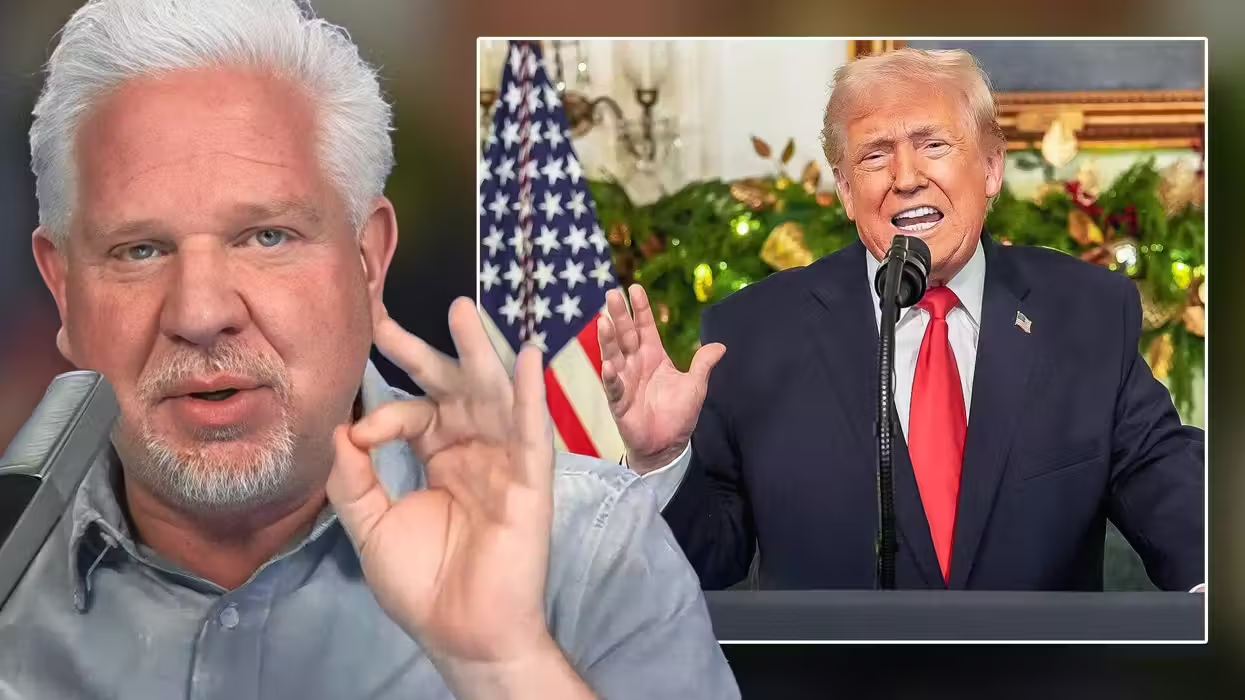
© 2025 Blaze Media LLC. All rights reserved.
CNBC Host Grills Reporter Over Press' Kid-Glove Treatment of Bernanke: Are You Afraid Your Access 'Would be Impaired'?
June 20, 2013
“These press conferences are very polite, you could argue they’re too polite."
CNBC’s Rick Santelli claims there are two kinds of people in the world of economics: players (traders, financers, etc.) and tailors (journalists, government spokesmen, etc.).
And according to Santelli, the players have had enough of the tailors letting Federal Reserve Chairman Ben Bernanke get away from pressers without asking him tough questions about why he is continuing his easy money policies despite the gradually improving economy.
The CNBC host had a chance to say as much on Wednesday when he sparred with Wall Street Journal economics correspondent Jon Hilsenrath.
“I’m a reporter,” Hilsenrath began. “I’m trying to inform the public of what the Fed is up to. If people don’t like what the Fed is up to, that’s part of the process of my informing them.”
 CNBC's analyst Rick Santelli. (CNBC.com)
CNBC's analyst Rick Santelli. (CNBC.com)
But Santelli was not satisfied with Hilsenrath’s characterization of his and the press’ handling of economic news, accusing the WSJ reporter and others of acting as “intermediaries” for the Fed.
“Let’s drop the pretense here,” said Santelli. “The reason your stories move the markets…is that the world at large does believe that you’re sourced. That’s the reality, and you can protest all you want.”
“Well, of course I’m sourced,” Hilsenrath responded. “Every reporter should be.”
The CNBC host dared the reporter to defend the Fed’s easy money policies.
“We have a horrible recovery, and as the central bank, they’re asking what else can they do to get the economy going again,” said Hilsenrath. “I think you have to ask the question: what’s the downside? What’s the risk? What damage could they be doing? A lot of people, including yourself, have said they could cause a lot of inflation. Well, show me the inflation.”
But Santelli was still fixed on the Fed, pressing the reporter to explain why the press isn’t more thorough in its handling of Bernanke.
“If you ask a tough question to the Fed, I mean a tough question, do you think that your access or your ability to ask a question at next press conference would be impaired?” Santelli asked.
“I will give you this,” Hilsenrath said. “These press conferences are very polite, you could argue they’re too polite. I’m also frustrated by one aspect of them: it’s difficult to ask the follow-up question.”
“You get the microphone in hand, you ask the question, and then the microphone gets passed to the next guy. It would be nice if we had the opportunity to ask follow-up questions when we don’t feel like we’re getting the answers we want,” he added.
Although the U.S. economy has been expanding at a moderate pace and labor markets have shown improvements in recent months, unemployment remains stubbornly high, the Fed said Wednesday.
The Fed signaled it is considering drawing down its $85 billion per month bond purchases, but failed to give any sort of timetable for when that may happen.
“The fundamentals look better to us,” Fed Chairman Ben Bernanke said in a press conference Wednesday afternoon, “especially in housing.”
The Fed in its statement estimates that U.S. unemployment will hit 6.5 percent in 2014, much lower than earlier estimates claimed. The bond-buying will continue until the employment situation improves. But until that happens, it appears the Fed is committed to keeping long-term interest rates at record lows by spending roughly $85 billion per month.
--
Follow Becket Adams (@BecketAdams) on Twitter
(H/T: Mediaite). Featured image CNBC/Getty Images.
Want to leave a tip?
We answer to you. Help keep our content free of advertisers and big tech censorship by leaving a tip today.
Want to join the conversation?
Already a subscriber?
more stories
Sign up for the Blaze newsletter
By signing up, you agree to our Privacy Policy and Terms of Use, and agree to receive content that may sometimes include advertisements. You may opt out at any time.
Related Content
© 2025 Blaze Media LLC. All rights reserved.
Get the stories that matter most delivered directly to your inbox.
By signing up, you agree to our Privacy Policy and Terms of Use, and agree to receive content that may sometimes include advertisements. You may opt out at any time.






